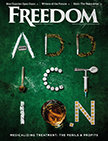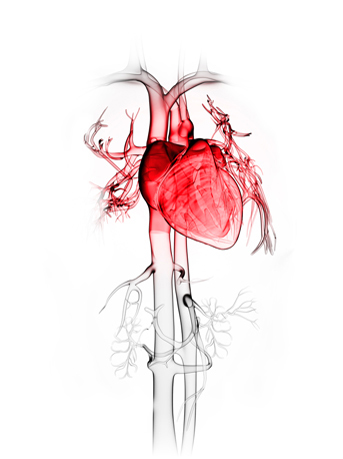Neurologist Fred A. Baughman has studied military deaths since hearing about the Charleston Four. (See “Courage Betrayed”) Shortly thereafter, he learned about the high incidence of deaths in Warrior Transition Units, where wounded veterans are housed and treated.
As reported in the Army Times, when the WTUs were established in June 2007 to October 31, 2008, 68 soldiers died while assigned to one of the facilities. Of those, nine were ruled suicides, six cases were pending, 13 were killed in accidents, and 35—more than half—were found to have died from “natural causes.”
“What the hell are ‘natural causes’ in 20-year-olds?” Baughman asked.
“My estimate is that there could be as many as 1,000 or possibly more deaths of soldiers and veterans from sudden cardiac arrest,” he said, “but we haven’t gotten any more than the 400 simply because the military isn’t saying.”
Other populations who are administered antipsychotics, such as seniors in assisted living centers, are likewise at high risk from sudden cardiac arrest, he said.
Army spokesman Robert Moore, who did not return phone calls for this investigation, said at the time, “We do have warriors in transition who have died of cancer under our care.” All soldiers, of course, passed extensive physical examinations confirming their excellent health at the time of enlistment. They had to be in great shape simply to get through basic training.
While Moore acknowledged there had also been some heart attacks, he in essence blamed those who could no longer speak in their own defense, the dead soldiers themselves: “We have lots of safety procedures in place to ensure the proper medications are administered, but we’ve run into situations where soldiers go out and get medications of their own or get alcohol and that can be lethal.”
Surviving relatives such as Stan and Shirley White flatly deny this. Their son Andrew “was taking exactly what the VA told him to take,” Shirley said. “He made that choice to trust the VA psychiatrists and that trust cost him his life.”
Prior to the Iraq and Afghanistan wars, the use of prescribed antidepressant and antipsychotic drugs was never part of military policy.
In a June 2010 report, the latest available on the subject, the Defense Department’s Pharmacoeconomic Center noted that 213,972, or 20 percent of the 1.1 million active-duty troops surveyed, were taking some form of psychotropic drug.
Since that report was released, those figures have greatly increased and are now considerably beyond the 20 percent level for psychiatric medications prescribed to active-duty soldiers. These are precisely the sort of drugs cited in an overwhelming majority of veteran suicides.
These substances significantly impair motor skills and reaction times, and cause confusion, disorientation and forgetfulness—critical damage to a skill set vital to soldiers in combat.
Other numbers are even more staggering, showing that the Departments of Defense and Veterans Affairs poured more than $4.5 billion into purchases of antidepressants, antipsychotics and anti-anxiety drugs in the decade after 9/11. The mass prescribing of these dangerous drugs continues in high gear once the soldier, sailor, Marine or airman comes under the authority of the Department of Veterans Affairs.
In return for the billions of dollars spent on these substances, suicides and cases of sudden cardiac arrest have soared.
A nurse practitioner with three decades of military service told Freedom, “It’s not the street drugs, the narcotics or the alcohol that are killing soldiers—it’s the psychotropics.” He is certain of that, he said, because he knew of at least 18 cases of sudden death in soldiers at the stateside Army base where he last served. All of them, he said, had been on Seroquel and Paxil. “These kids were killed—no doubt about it,” he said. “Every one of these kids was on this nasty cocktail.”
Studies confirm the deadly effects. In May 2013, Clinical Psychiatry News reported that a study of 1,544 documented cases of sudden cardiac death and 774 controls showed “patients on a first-generation antipsychotic agent [examples: Haldol, Prolixin, Thorazine] had a 3.76-fold increased risk of SCD [Sudden Cardiac Death]…and those on a second-generation antipsychotic drug [examples: Risperdal, Seroquel, Zyprexa] had a 3.3-fold increased risk.”
Earlier, a study headed by Wayne A. Ray, professor of preventive medicine at Vanderbilt-Ingram Cancer Center, published in 2009 in the New England Journal of Medicine, noted, “Current users of…antipsychotic drugs had higher rates of sudden cardiac death than did nonusers of antipsychotic drugs…[T]he risk for current users increased significantly with an increasing dose.”
A 2008 study headed by Serge Sicouri, M.D., research scientist in experimental cardiology at the Masonic Medical Research Laboratory’s Cardiac Research Institute, concluded, “A number of antipsychotic and antidepressant drugs can increase the risk of ventricular arrhythmias and sudden cardiac death” and “Antipsychotics can increase cardiac risk even at low doses.”
And in an article in European Heart Journal in September 2011, the researchers concluded, “The use of psychotropic drugs, especially combined use of antipsychotic and antidepressant drugs, is strongly associated with an increased risk of SCD.”
“An immense coverup has been and remains in place,” Baughman said. “Sudden cardiac deaths are still occurring. There’s no doubt in my mind that there has long been full awareness of these deaths and their actual cause among psychiatrists and others at every base involved. Yet nowhere has there been an admission of what has occurred. This is fraud, on a massive scale, evil in plain daylight.”
But how can such a dire predicament get reversed? It isn’t hopeless, maintains Lieutenant Colonel Bart Billings, a retired Army psychologist. “If you want to improve the situation,” he said, “put somebody in charge that is not dependent on making a living by selling drugs.”






























